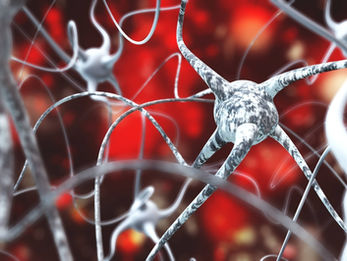top of page
BCIA Continuing Education Posts
The BioSource Faculty Explain Peer-Reviewed Science


Parkinson's Disease as a SCAN Disorder
The central discovery is that M1 is not simply a mosaic of body-part territories. Woven among those effector-specific zones (the patches that control the hand, the foot, the mouth) lies a second system called the somato-cognitive action network, or SCAN.
Fred Shaffer
1 day ago12 min read


Inter-Organ Communication: A Paradigm Shift
Scientists are now discovering that organs engage in a rich, multidirectional web of “crosstalk” that extends far beyond what nerves and hormones alone can account for.
Fred Shaffer
3 days ago19 min read


Spotlight on György Buzsáki: What Brain Rhythms Mean for Neurofeedback
György Buzsáki argued, with decades of evidence behind him, that brain rhythms are not passive reflections of "brain states" but functional organizing tools that help the brain coordinate large populations of neurons in time.

John S. Anderson
5 days ago8 min read


John S. Anderson on Brain Flexibility, Resilience, and Choice as Goals for Neurofeedback
Neurofeedback training develops flexibility, resilience, and choice—skills that enhance any endeavor without altering personality or eliminating existing strengths.

John S. Anderson
Feb 111 min read


Revitalizing EEG Neurofeedback
Methamphetamine cues directly undermine response inhibition by activating brain networks that compete with self-control.

John Davis
Jan 258 min read


Learning to Learn: How Better Reinforcement Design Makes Neurofeedback and Biofeedback Work (and Stick)
Neurofeedback outcomes improve when we stop treating feedback as “information” and start treating it as an engineered learning environment.
Fred Shaffer
Dec 19, 202515 min read


What's Doing the Work? Isolating the Active Ingredients in ILF Neurofeedback
Connectivity effects were observed only when FB and ILF were delivered together.
Fred Shaffer
Dec 18, 20258 min read


Listening to the Body: Why Interoception Might Be Critical to Mental Health
Interoception invites clinicians to ask not only "what are you thinking?" and "what are you feeling emotionally?" but also "what is your body telling you, and how clearly can you hear it?"
Fred Shaffer
Dec 17, 202513 min read


Enhancing Inhibitory Control in Older Adults: A Biofeedback Study
Training individuals to self-regulate both autonomic activity and prefrontal blood oxygenation may enhance specific components of inhibitory control that rely on prefrontal circuitry.

John Davis
Dec 17, 20258 min read


Neurofeedback May Protect Older Adults' Cognitive Abilities
Efforts to bolster cognitive abilities during normal ageing may be protective against neurocognitive disorders in older adults.

John Davis
Dec 10, 20259 min read


Neurofeedback Can Protect and Enhance the Aging Brain
Across the studies reviewed by Jiang and colleagues (2022), neurofeedback consistently produced modest improvements in working memory and attention in both younger and older adults.

John Davis
Dec 8, 20257 min read


Steven Porges' HRV Journey
Heart rate variability is not a mistake in the system. It is a living signature of how the nervous system is regulating the heart in real-time.
Fred Shaffer
Dec 6, 202510 min read


On the Same Wavelength: How Brain Similarity Predicts Who Becomes Friends
Neural similarity measured when people were still near-strangers predicted who ended up socially closer in a real friendship network months later.
Fred Shaffer
Dec 4, 20259 min read


The Brain's Hidden Rhythm: How Neural Networks Cycle Through States in Under a Second
The brain wasn't just switching between networks. It was circulating through them in a consistent order.
Fred Shaffer
Dec 4, 20259 min read


Slow-Paced Contraction Training Using a Multichannel Biofeedback System
Slow-paced contraction (SPC) training to increase HRV can also benefit from multichannel systems.
Fred Shaffer
Dec 3, 202518 min read


Five Phases of Brain Wiring: How Your Neural Networks Change From Birth to Old Age
The brain's wiring passes through a series of turning points that divide the lifespan into five distinct phases.
Fred Shaffer
Nov 27, 20259 min read


BioSource Update
Upcoming posts will explore slow-paced contraction using data-acquisition systems and best practices in the clinical assessment of ADHD and autism.
Fred Shaffer
Nov 23, 20252 min read


Neurophysiological Assessment in Clinical Practice
Neurophysiological assessment serves not as an independent diagnostic tool but as a physiologically grounded framework for understanding how clients process information, regulate emotions, respond to stressors, and organize their behavior.

John S. Anderson
Nov 21, 202516 min read


Precision Psychopharmacology: Irritability and Rage
This case involves a 28-year-old male who presented with progressive irritability and explosive anger episodes that emerged following sequential trials of two antidepressants and subsequently a psychostimulant.
Fred Shaffer
Nov 19, 202518 min read


5-Min Science: The Role of Pacemaker Neurons in Networks Trained by Neurofeedback
Pacemaker neurons cycle between quiet and active phases on their own, creating brief bursts of action potentials that can set the tempo for larger populations.
Fred Shaffer
Nov 17, 202511 min read
bottom of page
